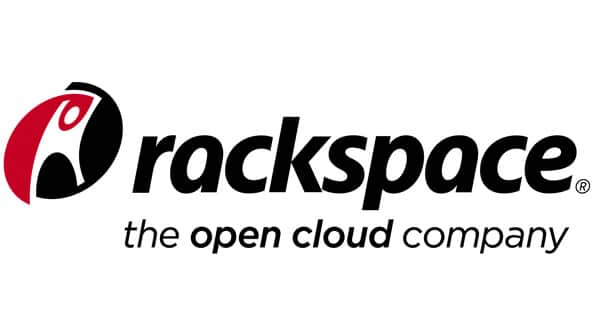
But which company is the right one for you? They have many similar features, and both are companies with great reputations. This can make deciding difficult.
However, each company has its strengths and weaknesses. Here, I’ll compare Rackspace and AWS, seeing how they stack up when it comes to price, speed, reliability, security, developer base, and customer service.
Before I dive into the comparison, here are the basics on cloud storage, as well as the two companies.
You might also like:
Table of Contents
What is cloud storage?
Traditional data storage involves keeping all of your information on one server. The problem with this is that hosting a lot of data in one place can take up a lot of room, and your data can be vulnerable if the server is damaged.
Cloud computing was developed as a way of solving this problem. With a cloud hosting service, your data is stored at third-party server sites. You connect to the data through the internet.
And to ensure that you always have access to your data, it is stored on multiple servers at once. If one server is down for maintenance, you’ll still have access to all of your data.
What’s so great about cloud storage? It allows you to access your data anywhere you have an internet connection. You don’t need to have a physical hard drive with you. It also stores your data on multiple servers. This means that there’s always a backup if something goes wrong with one of the servers.
Cloud storage for small business
As the amount of data continues to grow, cloud service companies have become increasingly popular. They are widely used by tech companies to host their data and by streaming services to deliver content.
However, smaller businesses are beginning to rely on cloud services as well. Cloud storage companies give you the ability to store your data like larger companies, and they give you access to a range of services that you simply wouldn’t have if you tried to manage your data on your own. They also help you collect more customer data, which is crucial to delivering custom products.
As more and more cloud storage companies have begun to pop up, Rackspace and AWS have turned into two of the industry leaders, offering a wide range of cloud storage services.
AWS: The industry leader

AWS offers virtual servers and cloud storage but also has additional services such as serverless computing. They run cloud servers from a wide variety of geographical locations all across the globe.
Rackspace — A worthy competitor
Rackspace is a much smaller company than AWS. The exact details are not available, but the company’s profits are less than a tenth of those of AWS. Although much smaller than AWS, it was founded 8 years earlier, in 1998.
Despite its size, Rackspace is a legitimate competitor to AWS. Although they do not offer quite as wide a range of services, they compete when it comes to virtual servers and cloud storage.
Rackspace vs AWS: How they compare
Now that I’ve gone through a short introduction, I’ll compare the two competitors on a variety of different features.
Pricing
So how do the two services compare when it comes to pricing? This question doesn’t have a straightforward answer. Why? The services use very different pricing models, making them hard to compare directly.
There are some key differences in the pricing schemes of the two companies, however. Rackspace has simpler plans that tend to have slightly lower prices at the entry level. If you don’t need quite as much cloud server space, you may end up paying less with Rackspace.
However, this lower price does come at the cost of customization. Rackspace doesn’t have as many plans as AWS, so it’s harder to find one that’s tailored to your specific needs. This won’t matter much for a lot of small businesses.
Who wins
When comparing Rackspace pricing vs Amazon, there is no clear answer for who is the better deal. Neither company will be cheaper for all users. If you are a small business without huge data storage needs, then Rackspace will likely be the cheaper option.
But if you are a larger corporation with more data and specific needs, you may save more money if you choose AWS.

Our #1 Choice For Hosting Blogs
62% Off Exclusive Offer Applied at Checkout
Regularly
$6.95/mo
Starting From
$2.64/mo*
- Free 1 Year Domain Registration on Select Plans
- FREE SSL Certificate
- Drag-and-drop Website Builder
- E-commerce Ready
- 1-Click WordPress Installation

Security
When it comes to security, both companies offer an impressive range of protection. No matter which service you choose, your data will be kept safe.
Your data, like on any cloud storage platform, is housed on multiple servers. If one server crashes or is down for maintenance, you’ll still be able to access your data.
And all of the server facilities have excellent onsite security. If you want to learn more about these facilities, you’ll get a first hand look here:
They each have their own security protocol with technical specifications that will go over the heads of anyone except cyber security engineers. For most users, the protection offered by these technologies is roughly equal.
And both companies offer designated servers, so you won’t have to share a server with other accounts.
Some users may worry about the geographical location of the physical servers. If this is a concern for you, AWS might be a better choice, as they have 16 geographic locations to choose from, as opposed to the 6 offered by Rackspace.
But keep in mind that 6 locations will offer enough geographical choice that you should be able to find a location where your data will be secure.
Who wins
Which service is safer? For almost all users, there is not a noticeable difference in security protection between Rackspace and AWS. If you want a bit more flexibility when it comes to geographical location, then AWS might be a better choice. Otherwise, Rackspace will give you all the protection you need.
Uptime

Both companies promise that they will have an uptime of at least 99.9% on their servers. This is a legal service agreement, not just an empty promise. And for the most part, the two companies live up to it. You’ll get reliable, consistent performance from both services.
Although the companies do have an impressive history of performance, they have had their issues. Rackspace has had shutdowns in the past, although they have a very clean record in recent years. You’ll also find a few minor blemishes on AWS’s record, but they, too, are very reliable.
Who wins
Some users may prefer to go with Amazon, just based on their reputation. But based on past performance, there is no evidence that one service has a consistently better uptime. You’ll get reliable data storage whether you choose Rackspace or AWS.
Speed
This is the where you may notice a difference between the two services. Rackspace is reported by many users to have better performance when it comes to speed. This means you may be able to access your data a bit more quickly if you choose Rackspace.
Take this with a grain of salt, however. Both companies offer a range of products, making head-to-head speed comparisons difficult. And AWS allows a lot of user customization of servers, which may have an impact on performance.
AWS is the leading cloud service provider, with countless streaming services trusting them to host their data. If AWS is fast enough for streaming services, it should be able to handle your data.
Who wins
Rackspace may have a slight edge here, but it’s not one that you will likely notice. And AWS is the cloud data choice of many of the world’s leading tech companies.
Developer base
If you want a service that has thousands of pre-built tools waiting for you, you’ll want to opt for AWS. They developed an extensive network of developers by making development on their servers easy.
Rackspace has, to their credit, tried to narrow the gap. But they simply don’t have the resources or clout to attract as many developers as AWS. However, if you are a small business looking for cloud data storage, you probably won’t need these tools.
AWS is great for those that need to develop highly customized data solutions. But if you just need someone to look after your data for you, Rackspace has more than enough infrastructure to keep you and your data happy.
Who wins
This one isn’t even close. AWS wins in a blowout. If you need developer tools, AWS is an excellent choice, giving you all of the flexibility you need to customize your servers.
With Rackspace, you won’t have as many options. They are quickly expanding their library of tools, so their customization is improving by the day. But they still have lots of work to do to keep up with AWS.
Wrapping it up: AWS vs Rackspace
From all of the comparisons above, you should see by now that Rackspace and AWS are both excellent services. For most users, there really isn’t that much that separates the two, and you will get great performance from both companies.
But there are some instances where one service is better than the other. If you need an extensive library of developer tools to use for your server management, AWS is the clear choice. Are you a large business with large volumes of data and in need of customized development tools? Then you should also choose AWS.
If you are a small business and want someone to manage your servers for you, go with Rackspace. And if you want personalized, warm, and responsive customer service, they are also your best option.
Compare the plans offered by Rackspace and AWS
Prices and services vary widely, so the best option is to look at each company’s specific plans to try to find one that suits your needs. This may frustrate those looking for an easy answer, but it will help you find the cloud storage service that best fits your business.
Related articles:


